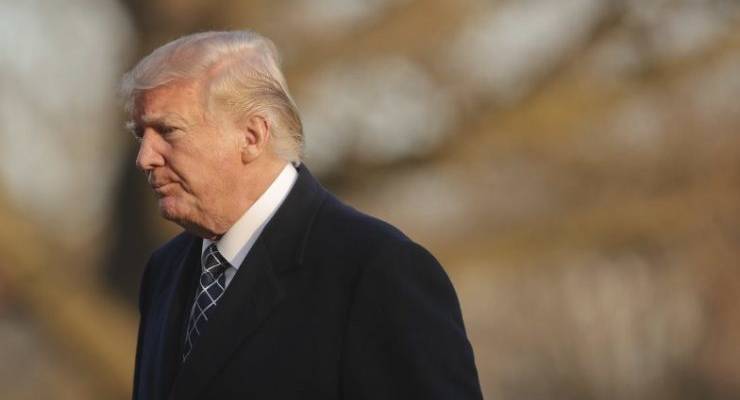
If Donald Trump is good at one thing, it’s keeping his word on election promises. The promises may have been utterly crazy, but Trump does appear to be sincere about trying to deliver. Abandoning the 2015 Iran nuclear deal with the “strongest sanctions in history” is a key case in point.
Apart from a poorly informed campaign promise, there’s no logical reason why Trump has dumped the Iran nuclear deal. It was not, as he said, “insane” and he was incorrect to claim that the US has paid Iran hundreds of millions of dollars in cash to sustain the deal. The US instead lifted a blockade on Iranian bank accounts, which provided Iranians with access to billions of their own money.
The deal, which Iran has overwhelmingly complied with, is formally known as the Joint Comprehensive Plan of Action (JCPA), to which the UN Security Council permanent five (USA, UK, France, Russia and China) plus Germany were signatories.
As a replacement to the JCPA, US Secretary of State Mike Pompeo offered Iran a new 12-point plan so onerous that one US lawmaker described it as requiring everything short of Iran becoming an officially Christian state. “Iran will never again have carte blanche to dominate the Middle East,” Pompeo said, presumably retaining for the US the right to do. Iran will be “crushed” if it does not comply.
The 12-point plan includes allowing full access to International Atomic Energy Agency officials (which they already have), abandoning its civilian nuclear power program, withdrawing support for Hezbollah, Hamas, Palestinian Islamic Jihad and Yemen’s Houthi militia, ending its long-range missile development program, withdrawing forces from Syria and effectively ending involvement in Iraq’s politics, which are increasingly limited in any case.
The US also wants Iran to cease its arguably non-existent support for Afghanistan’s Taliban, even though the Taliban is primarily supported by US ally Pakistan’s Inter-Services Intelligence organization. This, then, starts to go to the nub of US concerns with Iran, the presumed lynch-pin in President George W. Bush’s fanciful “Axis of Evil”, which also included Iraq and North Korea. Iraq — the invasion of which turned out so appallingly — had neither weapons of mass destruction nor a nuclear capability.
Behind it all, the US has not forgiven Iran for deposing the CIA-installed Shah and its humiliating hostage-taking of US embassy staff in 1979-81. The more belligerent of Trump’s advisers also wish to reassert the US weakened position on the world stage, as manifested in the strategic quagmire that is the Middle East.
By extension from Iraq, the US is also seeking to redress the imbalance currently being experienced in Syria, where Russian and Iranian-supported forces are slowly clawing back territory in the country’s bloody seven-year civil war. The US would like nothing more than to hobble one of Russia’s key regional allies.
Imposing new restrictions on Iran also supports Israel, as well as the US’ other key regional ally and Iranian nemesis, Saudi Arabia. Yet rather than securing the interests of the US or its regional allies, trying to compel Iran into obeisance is likely to have the opposite effect. As was learned from North Korea, crippling sanctions do not stop a nuclear weapons program, which Iran may now feel compelled to pursue in the face of what it regards as a US push for regime change.
With the North Korea de-nuclearisation deal teetering on the brink of collapse and Iran now freed from the restrictions of the JCPA, Trump has provided the US and its allies with precisely the type of insecurity that international diplomacy is supposed to prevent.
Trump has tried to be true to his erratic word, and has taken the world on a roller coaster in the process. It is unclear, however, that his pushing of strategic boundaries will end as well as his bombastic claims suggest.








Where do you get this,”abandoning its civilian nuclear power program” from? Iran is required to abandon its military weapons program, for sure. And they are required to downgrade all enriched uranium to low fuel grade, less than 3.7% U235. However their civilian nuclear program continues. The Bushehr reactor routinely generates 1000 MW, and two more such units are planned alongside it. Its fuel is manufactured in Russia, presumably including a LEU swap. All civilian nuclear facilities are under inspection by the IAEA.
Roger, “abandoning its civilian nuclear power program” is a demand from Washington now that they have dumped the previous arrangement.
It wasn’t part of the deal that has been in place for a few years.
Wayne, thanks for the correction. Iran does not need an enrichment program for fuel when e.g. Russia is able to supply all their fuel needs. So I guess it is the enrichment facilities that the Trumpians want abandoned, not their noncarbon power supply.
Alas Professor K, I think you misunderstand the Trumpian thinking. The Iran deal is about Sucking up to the Saudis where his business interests lie. The other half is obviously the Kushner families close ties to Israel and making the Netanyahu scum happy. Trump does not give a toss and he is currently smashing whatever integrity the US has everywhere he goes.
Can Trump see beyond the edge of the domestic stage – his need to be liked at home?
Inadvertently this transcription from Langley VA conveys useful information about the Deep State – clearly it is having conniptions but the Orange Ogre is on a roll.
It defies credulity that a single brain could encompass the thought of the ayatollahs supporting sunni Taliban but then I doubt that sufficient functioning neurons remain beneath Axminster.
Peace is not in the interests of the US and Israel. Their economies now depend on the machinery of war and the surveillance state, and there are too many powerbrokers in both nations who personally benefit from these industries. War used to have the disincentive of being bad for the economy – but no longer, unfortunately.